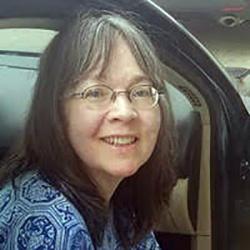Patricia M. Clay, Ph.D.
Background
Trish received a B.A. in Anthropology and Modern Languages from the University of Notre Dame in 1981 and a Ph.D. in Anthropology from Indiana University in 1993. She joined the Northeast Fisheries Science Center (NEFSC) that same year. Trish currently serves on the Red Crab Fishery Plan Development Team of the New England Fishery Management Council, is Chair of the Society for Applied Anthropology's Topical Interest Group on Fisheries and Coastal Communities, co-chairs the International Council for the Exploration of the Sea (ICES) Working Group on Maritime Systems, and is a member of the Executive Committee of the NOAA Social Science Committee. She also serves as Tribal Liaison for the NEFSC. In 2024 she received the Bronislaw Malinowski Award from the Society for Applied Anthropology. This award “is presented to an outstanding social scientist in recognition of efforts to understand and serve the needs of the world's societies, and who has actively pursued the goal of solving human problems using the concepts and tools of social science during one's entire career.”
Research
Trish's primary research interests are social and cultural aspects of fisheries and fishing communities as they relate both to ecosystem-based management and social impact assessment, including the impacts of climate change on all of the above. Current and recent projects include using oral histories to investigate barriers to entry for young fishers; co-drafting the Northeast Regional Action Plan to implement the NMFS National Climate Science Strategy at a regional level; work on sociocultural and economic fisheries issues related to marine mammals and sea turtles; and investigating potential qualitative and quantitative indicators of well-being for fishermen and fishing communities.
Professional Links:
